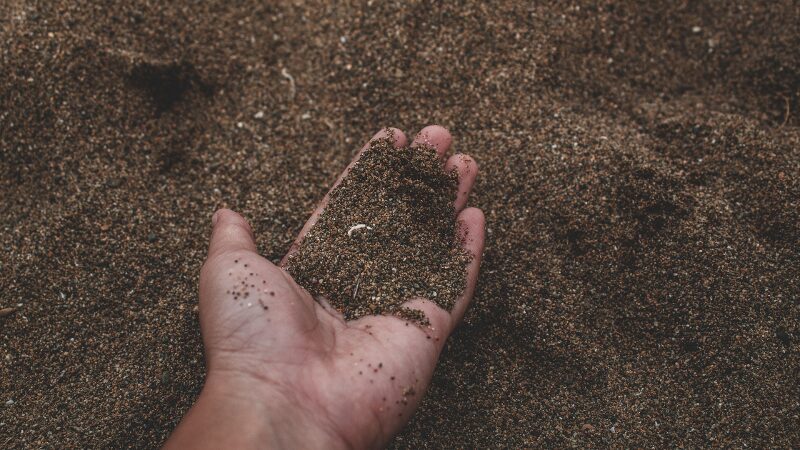Soil compaction is a vital part of your home’s construction. The type of soil your house is built on and the way it is compacted are two important considerations. The foundation of your Houston home relies on the firm support of the soil underneath it to remain stable. Any shifting of this soil can cause the foundation to move, heave, and crack.
Once this starts happening, you will likely need to call in a foundation repair specialist to assess the damage and cost to repair your foundation. A cracking or sinking foundation can compromise the integrity of your Houston home’s structure, leading to much anxiety on the homeowners’ part. Let’s discuss the different soils and how they can affect the foundation beneath your home.
1. Silt Soil
Silt soil can be smooth and almost slimy to the touch. This is because this soil type retains water very well. This allows the soil to have good compaction. However, its ability to hold water for longer periods of time makes this a poor material for building a home. The soil remains cold and wet and unable to drain well. As the silty soil absorbs water, it pushes against the foundation and weakens it – causing a need for foundation repair services. This type of soil is common in the Galveston area.
2. Sandy Soil
Sandy soil acts in just the opposite manner of silt. This soil has the largest particles of the different soil types. Because there is plenty of space between particles, this soil type drains more readily than other soils, so it doesn’t hold moisture. Compacted properly, sandy soil makes a good base for your foundation. The problem, as foundation repair experts will tell you, is that this soil will lose the ability to support the foundation if too much moisture remains in it. Sandy substrate makes for a mostly stable foundation, but you will need a good drainage system.
3. Clay Soil and Foundation Repair
Clay soil can hold a lot of water because it is made up of smaller particles. The ability to hold water can make it difficult to have a stable foundation in this medium. Clay will also expand greatly when it’s holding moisture. Because it’s extremely pliable when moist, it can be easily moved and manipulated. However, when the clay dries out, it shrinks significantly too. This can cause the foundation to become weak and possibly crack. Any extreme changes in the moisture content of clay soil will put great pressure on your Houston home’s foundation, leading to a foundation that will start to move and buckle over time. The result of which is a need for calling in a foundation repair expert. This makes clay soil one of the poorer supports for any home foundation. Clay soil is commonly found in the Greater Houston area.
4. Loam Soil Equals No Foundation Repair
What do most foundation repair experts recommend to home builders? That would be soil that is referred to as loam. Loam soil consists of a balanced mixture of sand, silt, and clay. It is soft, dry, and crumbly when touched. But don’t let the smoothness of the soil fool you, as loam is a great base for your home’s foundation. The reason loam soil makes the perfect foundation base is that it absorbs and holds water at a balanced rate. This means that it can absorb water well while still allowing for effective drainage to happen. Because this soil doesn’t expand and contract with moisture changes, it can prevent foundation damage. However, to ensure a solid substrate for your home’s foundation, loam soil must also be compacted very well before pouring the concrete.
If you’ve just bought a home in the Houston area, a foundation repair expert can inspect your foundation and tell you what type of soil it rests on. This can help you understand what problems you might be up against, so you can possibly prevent future foundation repairs. It should be noted that loam soil is not common in the Houston area. If a home is built upon it, it is because this was man-made and can be quite costly.
There are other types of soil that can be used under the foundation of your home. However, the soils we discussed are the ones that the foundation repair experts will most likely be talking to you about. This is why choosing the right foundation repair company is going to be crucial to your home’s health and family’s happiness for years to come.

